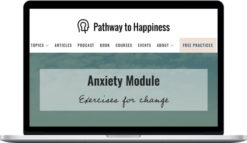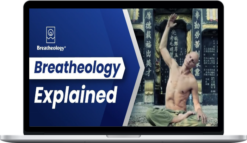Centre of Excellence – Introduction to Stoicism Diploma Course
$177.00 $33.00
»Delivery: Within 24hs
Description
Centre of Excellence – Introduction to Stoicism Diploma Course
Description Of Introduction to Stoicism Diploma Course
Stoicism is based on ideas that help people to live their best possible lives. It’s a philosophy that promotes positive emotions and helping individuals embrace the virtues of their character. It does this by highlighting the importance of simplicity so that people can find peace and harmony within themselves and the world around them and focus on what truly matters rather than getting caught up in negative emotions and behaviours.
The Introduction to Stoicism Diploma Course begins by going back to the foundation of Stoicism. You’ll first be introduced to Zeno of Citium, the philosophy’s founder, before reviewing the history of Stoicism and some of the philosophy’s key subscribers, including Cleanthes, Cato the Younger, Seneca and Epictetus.
From this introduction, you’ll dive deep into the foundation that underpins the entire Stoic system of philosophy. You’ll gain a Stoic understanding of physics, logic and ethics, and the core disciplines that are derived from them, and how to use this knowledge to improve your everyday life.
The four virtues that the Stoics believed were essential to understanding your true self are covered in the Introduction to Stoicism Diploma Course. You will be led through an exploration of the good, the bad and what the Stoics deemed, the ‘indifferent.’ You will also learn about appropriate and ‘perfect’ acts, as well as the idea of the ‘wise man,’ and what he represented to the Stoics.
The course details the Stoic approach to love, including sexual love, relationships and self-love, and introduces the concept of apatheia and how it was necessary for a life of eudaimonia.
You’ll explore the considerations that ancient Stoics gave to money when contemplating how to lead a happy life. These include noting whether extreme wealth is considered good or evil and how some of the richest Stoics reconciled their riches with the ideals of a simple life.
The Introduction to Stoicism Diploma Course explains what is meant by ‘the rational mind’ so that you have a starting point in understanding how our thoughts are at the very essence of our being and how the body is used as a tool to nourish and enhance the mind.
Following that you will be introduced to specific Stoic exercises and strategies that are built around best practices to achieve calmness of spirit and clarity through thought. Further to this, the course explains how to apply Stoic principles and strategies to get more out of life. You’ll also learn why friendship is an important part of being a Stoic and how Stoics approach death and grief.
The course concludes with exercises that will aid you in bringing the practice of Stoicism into your everyday life.
What You’ll Learn In ntroduction to Stoicism Diploma Course
By the end of the course you will:
- Be more familiar with the work of the main ancient Stoics
- Understand what it means to live in accordance with nature
- Be aware of the three main fields of learning and the disciplines derived from them
- Comprehend the Stoic concept of eudaimonia, and other key concepts including determinism, apatheia, and indifference
- Know what the Stoic virtues are
- Have an understanding of Stoicism’s central practices including applying logic, staying in the present moment, gratitude for what is, and accepting what you can and cannot control
- Know what is meant by Memento Mori and how the Stoics practised it
- Be confident that you can apply Stoic exercises and principles to your own life
Course Syllabus
What will I learn on the course?
Module 1: What is Stoicism?
- Introduction
- Part 1: A Brief History of Stoicism
- Part 2: The Most Well-Known Stoic Philosophers
- Part 3: Eudaimonia and Basic Stoic Philosophies
Module 2: The Three Topoi and the Three Disciplines
- Part 1: The Three Topoi
- Part 2: Aristotle’s Logic Vs. Stoic Logic
- Part 3: The Three Stoic Disciplines
Module 3: Virtues and Indifferents
- Part 1: How to Live in Accordance with Nature
- Part 2: The Four Virtues
- Part 3: Appropriate Acts, Perfect Acts and Vicious Acts
Module 4: Love, Self-Love and Relationships
- Part 1: Love at the Centre of Stoicism
- Part 2: Self Love
- Part 3: Stoicism and Loving Relationships
Module 5: The Paradox of Wealth
- Part 1: The Stoic Approach to Money and Power
- Part 2: Stoic Thoughts on Luxurious Living
- Part 3: Poverty of Desire
- Part 4: How to be Rich – and Virtuous
Module 6: The Tranquillity of the Mind
- Part 1: The Rational Mind
- Part 2: Stoic Strategies for a Calm and Peaceful Mind
Module 7: Work and Play
- Part 1: Stoicism in the Workplace
- Part 2: Guard Your Emotions
- Part 3: Leisure and the Stoics
Module 8: Death and Grief
- Part 1: The Reality of Death
- Part 2: Dealing with Loss
- Part 3: Training for Grief
Module 9: Daily Stoic Practices for Daily Living
- Part 1: Turning Philosophy into Action
- Part 2: Practise Gratitude
- Part 3: Contemplate the Worst
- Part 4: The Importance of Saying ‘No’
Who Would Benefit from This Course?
Living in the world today is not always so easy. There are mounting pressures that have developed from society’s obsession with work, money and technology. We judge ourselves against what everybody else appears to do and have.
If you want to step out of this flow of wants and into real happiness, then the Introduction to Stoicism Diploma Course may be just what you’re looking for. Containing Stoic theories and practical exercises and strategies, you can implement changes to your life almost immediately.
About Centre of excellence
Here at Centre of Excellence we are supremely proud to be at the heart of a vibrant community of hard-working students. The determination and enthusiasm of our students never ceases to impress us and there is nothing better than seeing our graduates go on to succeed in further education, work, business or just life in general!
More courses from the same author: Centre of excellence
Delivery Policy
When will I receive my course?
You will receive a link to download your course immediately or within 1 to 21 days. It depends on the product you buy, so please read the short description of the product carefully before making a purchase.
How is my course delivered?
We share courses through Google Drive, so once your order is complete, you'll receive an invitation to view the course in your email.
To avoid any delay in delivery, please provide a Google mail and enter your email address correctly in the Checkout Page.
In case you submit a wrong email address, please contact us to resend the course to the correct email.
How do I check status of my order?
Please log in to HealingCourse account then go to Order Page. You will find all your orders includes number, date, status and total price.
If the status is Processing: Your course is being uploaded. Please be patient and wait for us to complete your order. If your order has multiple courses and one of them has not been updated with the download link, the status of the order is also Processing.
If the status is Completed: Your course is ready for immediate download. Click "VIEW" to view details and download the course.
Where can I find my course?
Once your order is complete, a link to download the course will automatically be sent to your email.
You can also get the download link by logging into your HealingCourse account then going to Downloads Page.
Related products
Total sold: 3
Total sold: 3
Total sold: 3









